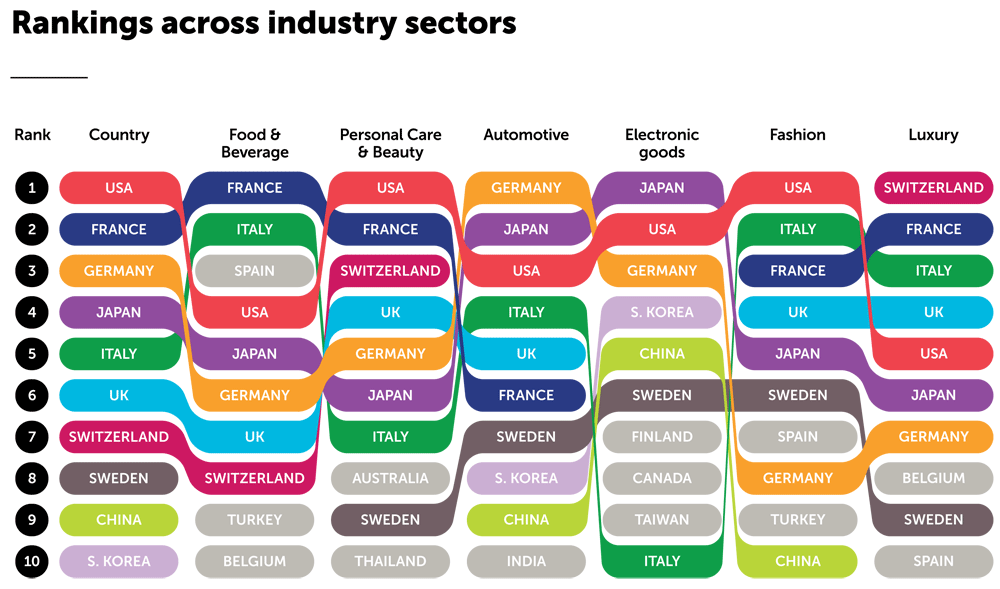Where a product comes from is a bigger driver of consumer choice than price, availability and style, according to new research.
FutureBrand Worldwide launched its new Made In: The value of Country of Origin for future brands report in London yesterday with presentations from Christopher Nurko, its global chairman, and Tom Adams, its global head of strategy.
Quantitative data drawn from 1,050 consumers in seven countries – the US, France, Brazil, India, China, Japan and Australia – and qualitative research undertaken with expert practitioners and academics culminated in the following "Country of Origin" rankings:
- USA
- France
- Germany
- Japan
- Italy
- UK
- Switzerland
- Sweden
- China
- South Korea
- Spain
- Belgium
- Turkey
- India
- Finland
- Australia
- New Zealand
- Brazil
- Denmark
- Mexico
These overall ratings were, in fact, heavily influenced by a country's relative strength in different sectors:

Source: FutureBrand (click image to enlarge)
While it is not necessary to align a product with its "Country of Origin" to succeed, it is becoming more important to be aware of the associations that national origins lend to a brand, especially as consumer awareness of quality, ethical working practices, safety concerns and sustainability grows.
The "Made In" concept is built up from both tangible and intangible factors, including the manufacturing process (the ingredients and raw materials used, the way things are assembled, and who by) and emotional contributors (what's it like to be from there, as well as the geography, culture and heritage of the place).
The strongest "Country of Origin" brands combine all of these factors. As such, the weakest products depend solely on a national "story" in their marketing. Mid-ranking offerings combine this "story" with a demonstration that their goods are designed and manufactured locally. When a product’s parent company is also then located in that country, it becomes the strongest possible example of a "Made In" brand.
Just as countries lend their personalities to indigenous brands, successful brands also influence perceptions of their homeland. The more brands that shoppers know are "Made In" a particular country, the more likely they are to prefer it as a "Country of Origin". It should also be noted that the notion of "origin" frequently means more than identifying which country the brand derives from, as "City of Origin" has similar effects.
Download the full report on warc.com

